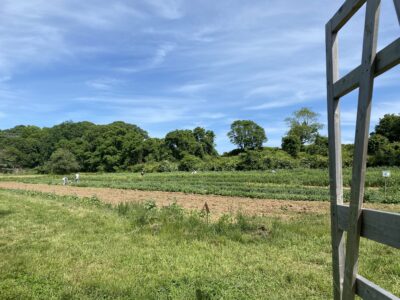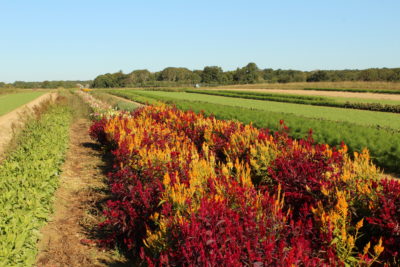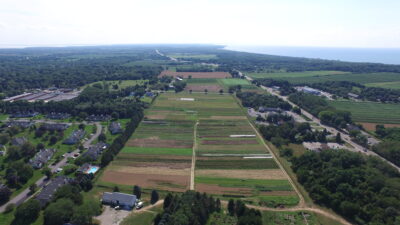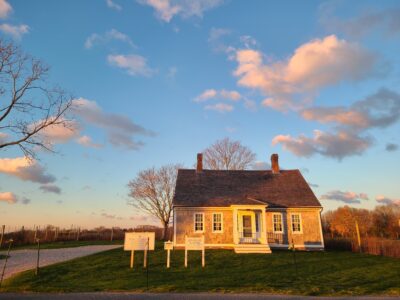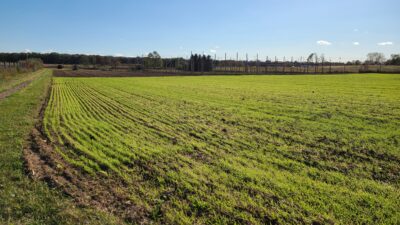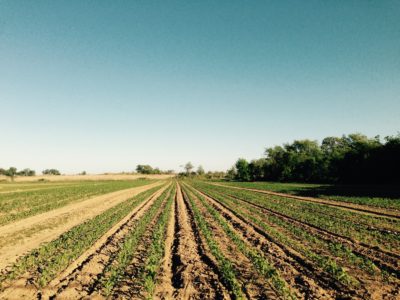Our Work
Farms for the Future Initiative
Photo: Jeff Heatley
What is Farms for the Future?
NEWS: Trust Issues RFP for Farmland in Bridgehampton
The Peconic Land Trust issued a Request for Proposal (RFP) for 27.2 acres of protected agricultural land in Bridgehampton. The parcels at 181 and 305 Halsey Lane in Bridgehampton are protected with affirmative and affordable farming covenants and resale restrictions (a.k.a. enhanced easement) held by the Town of Southampton.
Responses to the RFP must be submitted by July 8, 2024, at 5:00 p.m.
Long Island’s farms and farmers are central to our economy, heritage, and the stewardship of some of the best farmland in the country. However, both new and established farmers are faced with intense development pressures, escalating real estate values, a decline in food production farming, and a lack of affordable farmland with infrastructure. “Farms for the Future” is a special initiative that the board and staff of the Peconic Land Trust have undertaken to explore these challenges in depth and problem-solve using pragmatic approaches. The Trust is working to ensure that Long Island’s farms and farming communities remain viable and productive now and in the future.
Interested in applying for our Farmland Leasing Program? Click here for the application.
Las granjas y los agricultores de Long Island son fundamentales para nuestra economía, nuestro patrimonio y la administración de algunas de las mejores tierras agrícolas del país. Sin embargo, tanto los agricultores nuevos como los establecidos se enfrentan a intensas presiones de desarrollo, el aumento del valor de los bienes raíces, una disminución en la producción agrícola de alimentos y una falta de tierras agrícolas obtenible con infraestructura. “Granjas para el futuro” es una iniciativa especial que la junta directiva y el personal de Peconic Land Trust han emprendido para explorar estos desafíos en profundidad y resolver problemas utilizando enfoques pragmáticos. The Trust está trabajando para garantizar que las granjas y comunidades agrícolas de Long Island sigan siendo viables y productivas ahora y en el futuro.
¿Está interesado en solicitar nuestro programa de arrendamiento de tierras agrícolas? Haga clic aquí para la aplicación.
Hear from Priscilla and Leslie Howard of Priscilla’s Farm, farmers in the Trust’s Farms for the Future Initiative.
How it Works
Since the 1970s, when Suffolk County’s landmark legislation created the first purchase of development rights program in the nation to ensure the future of agriculture on Long Island, about 20,000 of 39,000 acres* of farmland in Suffolk County has been protected from development through the efforts of many, including the County, Towns and private conservation organizations like the Peconic Land Trust. While we have protected this critical resource from development, we are now painfully aware that these thousands of acres have not been protected for farming.
Addressing this vexing, unanticipated problem requires multiple solutions by all involved.
In an April 25, 2013 Viewpoint in the Southampton Press,
Trust President John v.H. Halsey wrote: “If we as a community do not
change the status quo, we will have very few farmers producing food on
the South Fork within a generation. If we want local food and the
farmers who produce it to endure, all sectors of our community must work
together to make it happen.”
The protection of farmland is the highest priority of the Community Preservation Fund, and the continuation of farming, especially the production of fresh, local food, is a defining attribute of our community character.
Since our founding in 1983, the Peconic Land Trust has preserved more working farms on Long Island than any other private conservation organization. Within the last decade, our focus has changed slightly — land protection remains first and foremost, but protecting the land for food production farming has grown in importance.
In 2008, the Trust introduced its Farms for the Future Initiative. Through a formalized program, the Trust actively seeks to not only protect the farmland — particularly that which is threatened by development — but to also grow the resource. Our initiative’s primary objectives are to:
- Develop and Expand our Farmland Leasing Program
- Provide Opportunities for Historically Underserved Farmers
- Expand Farmer Support
- Buy, Protect, Rebuild, and Resell Farms to Farmers
- Expand Regenerative Agriculture
- Support Affordable Housing for Farm Purposes
It takes many people to ensure that Long Island’s future includes productive farms, here are a few of our partners:
- Long Island Farm Bureau
- Cornell Cooperative Extension of Suffolk County
- Cornell University’s Long Island Horitcultural Research & Extension Center
- Long Island Wine Council
- Edible East End
- Suffolk County Planning Commission
- Suffolk County Department of Economic Development and Planning
- Nassau Land Trust/Crossroads Farm
- American Farmland Trust, New York
- Land Trust Alliance
*Source: Suffolk County Agricultural and Farmland Protection Plan 2015.
Learn more about:
Farmland Leasing Program
As part of our Farms for the Future Initiative the Trust has developed and formalized a Farmland Leasing Program for both new and established farmers.
Overlay Easements with Farming Covenants
A relatively new tool for the land conservation community that provides additional restrictions on already protected farmland.
Farmland Access Programs
Information on resources for owners of farmland interested in conservation options
Quail Hill Farm
Meet the Staff
Please join our efforts to ensure that local food remains an important part of our Long Island heritage. For more information, and to get involved, contact


